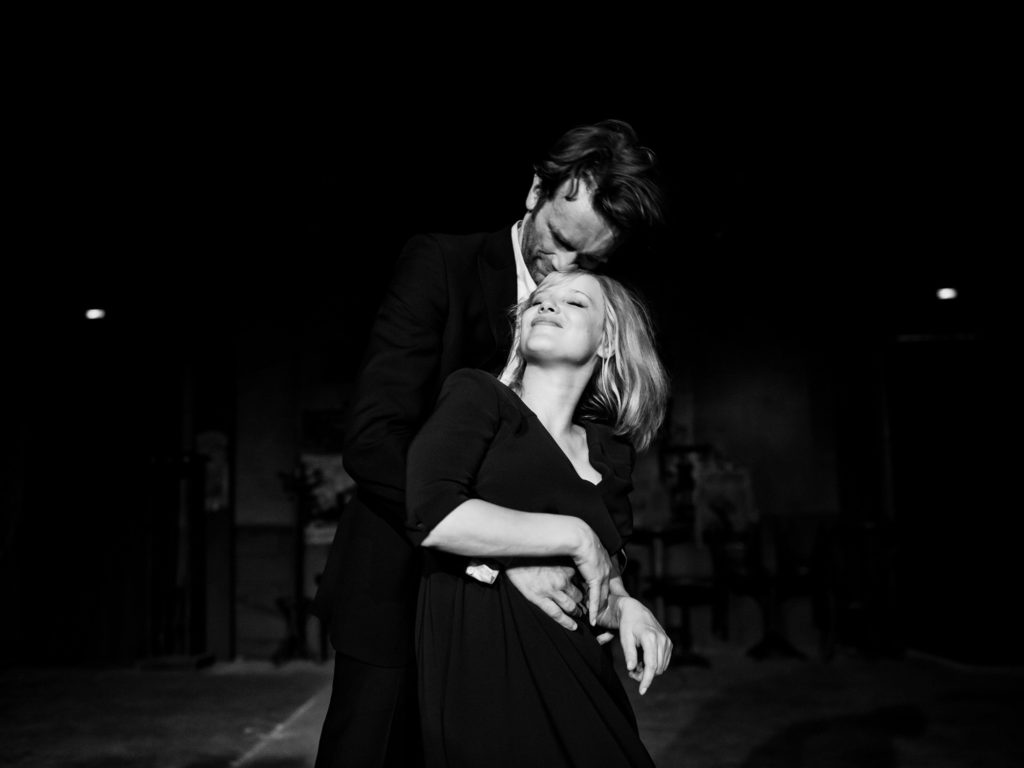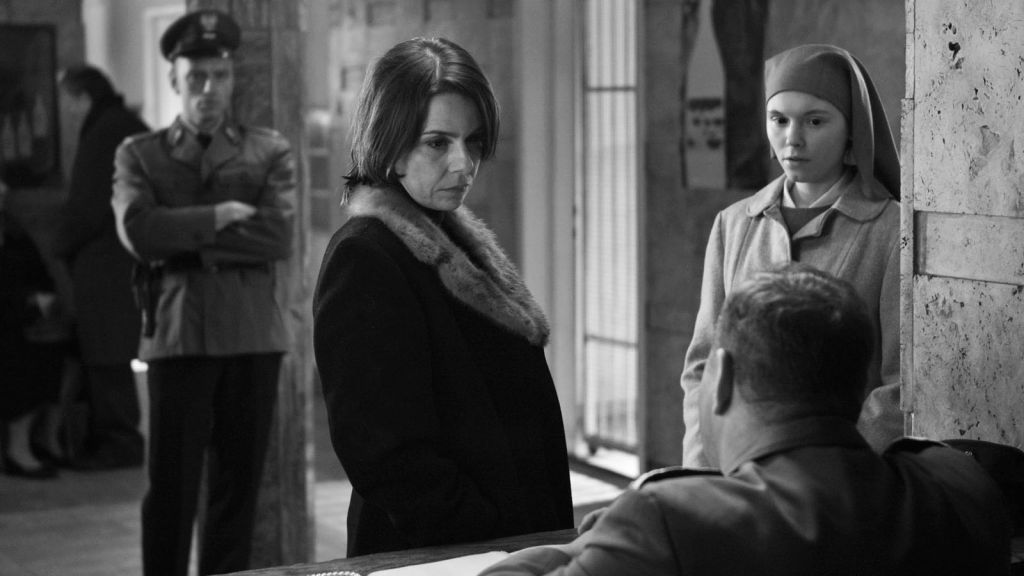
In the sweeping romantic tragedy Cold War, Wiktor (Tomasa Kot) is a talented musician/arranger in post-War Poland and an archivist of folk music. He becomes the musical director of a communist state-sponsored folk music revue, and falls for the ensemble’s comely and spirited lead Zula (Joanna Kulig), despite her being a bit of a brat. This being the Cold War, the question is whether the couple can flee Poland to freedom, artistic and otherwise. Zula is so unreliable that this is not cut and dried. Instead, the story spans a decade and four European countries as writer-director Pawel Pawlikowski explores the depths of sacrifice that humans will make for love.
The story in Cold War is inspired by that of Pawlikowski‘s own parents. Cold War is not as compelling as his recent masterpiece Ida. Virtually every shot in Ida could be hung in a gallery, which is not the case in Cold War although there are many beautifully filmed sequences. Both Ida and Cold War are shot in exquisite black-and-white and in a boxy aspect.
Joanna Kulig’s appearance changes dramatically depending on her makeup – to an unusual extent. The Wife suggested that this reflected a chameleon-like aspect to the character of Zula.
I enjoyed the character of the slime ball toadie Kaczmerak (Boris Szyc), the administrative manager of the folk music group. Kaczermak is so accepting of the corruption in Cold War communist society, that he greets every development with tranquil aplomb.
Fans of Ida will recognize Agata Kulesza, who played Ida’s aunt, as Wiktor’s musical partner Irena.
I saw Cold War at the Mill Valley Film Festival in October. It releases in theaters on December 21 and, having been financed by Amazon Studios, will be streamable from Amazon.


